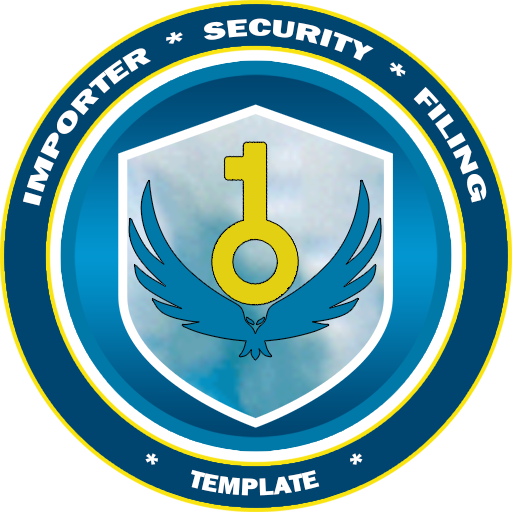Where To File ISF For Smart Translators
What role does the Importer Security Filing (ISF) play in the transportation of goods, and how can smart translators effectively manage this process?
The Importer Security Filing is a crucial component of the shipping process, particularly for businesses involved in international trade. You may wonder where to file ISF for smart translators in order to ensure smooth transport and compliance with U.S. Customs and Border Protection (CBP) regulations.

Understanding the Importer Security Filing (ISF)
The Importer Security Filing (ISF) is a document required by U.S. Customs and Border Protection for imports arriving by ocean freight. This filing is critical for risk assessment and security purposes. Essentially, it provides CBP with data that can help them identify high-risk shipments before they arrive in the United States. As a smart translator involved in international business, understanding how to file an ISF correctly is essential to keep your operations running smoothly.
Importance of Filing ISF
Filing the ISF properly can help you avoid delays, penalties, and other issues that may arise at the border. It is important to recognize that if the ISF is not filed correctly or on time, your goods may be held or even denied entry into the United States. Therefore, understanding where to file ISF for smart translators is an integral step in ensuring compliance with regulations.
Key Components of the ISF
There are several key pieces of information that must be included in the ISF. These include:
- Importer of Record Number: Unique identifier of the importer.
- Consignee Information: Details about the party to whom the merchandise is being shipped.
- Product Description: Clear and concise descriptions of the goods.
- Country of Origin: The country where the goods were manufactured.
- Manufacturer Details: Information about the manufacturer or supplier of the goods.
These components must be accurate and submitted within a specific timeframe, usually at least 24 hours before the cargo is loaded onto a vessel destined for the United States.
Where To File ISF For Smart Translators
When considering where to file ISF for smart translators, it is important to know that submissions are typically made electronically through the Automated Commercial Environment (ACE) system. By using CAD (Commercial Automated Data), you can send your ISF directly to U.S. Customs.
Filing Through a Customs Broker
One of the most effective methods for filing an ISF is to work alongside a licensed customs broker. These professionals have extensive knowledge of the ISF process and can help streamline your filing. They are familiar with current regulations and can ensure that your filings are done correctly and on time.
Table 1: Advantages of Using a Customs Broker
| Advantage | Description |
|---|---|
| Expertise | Knowledgeable in customs regulations and ISF filings. |
| Risk Mitigation | Reduces the chance of mistakes leading to penalties. |
| Time Efficiency | Frees up your time to focus on core business functions. |
| Communication | Acts as a liaison with Customs and Border Protection. |

Steps to File ISF for Smart Translators
You might find that following a series of steps can simplify the process of submitting your ISF. These steps are essential for ensuring that you are compliant with all regulations:
-
Gather Required Documents: Before you proceed with filing, compile all necessary information, such as shipping documents and product descriptions.
-
Choose a Filing Method: Decide whether you will file on your own via ACE or work with a customs broker to facilitate the process.
-
Provide Accurate Information: Ensure that all details, including the importer of record number and consignee information, are accurate and complete.
-
Submit the ISF: If filing electronically, follow the ACE guidelines for submission. Should you choose to work with a customs broker, provide them with the necessary information and documentation.
-
Monitor Your Filing Status: Keep an eye on the status of your ISF submission to confirm that it has been accepted by Customs.
Common Pitfalls in ISF Filing
As a smart translator, it is important to understand common mistakes that often occur during ISF filing. Awareness of these pitfalls allows you to be proactive and reduce the risk of issues arising:
- Incorrect or Missing Information: Missing key elements can result in rejections and delays.
- Late Filings: Submissions must be made at least 24 hours before loading. Late filings can incur penalties.
- Failure to Update Information: If any changes occur after submission, be sure to update your filing promptly.
Services to Consider
As you navigate the complexities of filing ISF for smart translators, consider utilizing various services that can make the process more manageable.
ISF Filing Services
Utilizing professional ISF filing services can streamline the process and alleviate the burden of dealing with compliance issues. These services offer expertise in the ISF requirements and can help ensure the timely and accurate submission of your filings.
Customs Clearance
For those engaging in international trade, customs clearance is another important service. Your goods must clear customs before they can enter the U.S. market. Custom clearance services can handle this process, making it easier for you.
Customs Bond
A customs bond is required for certain shipments and provides financial protection to ensure that duties, taxes, and penalties are paid if necessary. Engaging customs bond services provides peace of mind, as it guarantees compliance with customs regulations.
Table 2: Overview of Services Related to ISF Filing
| Service | Description |
|---|---|
| ISF Filing Services | Expert support for timely and accurate ISF filings. |
| Customs Clearance | Facilitates shipment clearance through customs. |
| Customs Bond | Financial protection for customs-related obligations. |

Best Practices for ISF Filing
Implementing best practices can greatly enhance the efficiency and accuracy of your ISF filings. These practices can prevent common pitfalls and facilitate smoother import processes.
Utilize Automation
Employing software designed for import compliance can automate the ISF filing process, reducing human error and ensuring that all necessary information is included.
Maintain Clear Communication
If you are working with suppliers or customs brokers, clear communication is essential. Provide precise information and address any questions promptly to avoid confusion.
Keep Updated on Regulations
Import/export regulations frequently change. Stay informed about any updates to ISF requirements and other customs-related rules.
Why Compliance Matters
Complying with ISF requirements is not only a legal obligation but also essential for maintaining a good relationship with U.S. Customs and Border Protection. Noncompliance can lead to severe consequences, including fines, delays, and even confiscation of goods. Your diligence in managing ISF filings directly affects your business operations and their reputation.

Conclusion
Understanding where to file ISF for smart translators is a crucial step in the international trade process. By leveraging resources like customs brokers and ISF filing services, you can navigate this complex landscape with greater ease and efficiency.
By following the steps outlined, you can ensure that your import processes are compliant, minimizing risks and enhancing operational effectiveness.
Take Advantage of Free Import Consulting
To further streamline your import activities, consider taking advantage of free import consulting services. Consulting experts can provide tailored guidance and resources to help you navigate the intricacies of international trade, ISF filing, customs clearance, and more. By seeking professional advice, you can make informed decisions that enhance your business success and compliance efforts.
